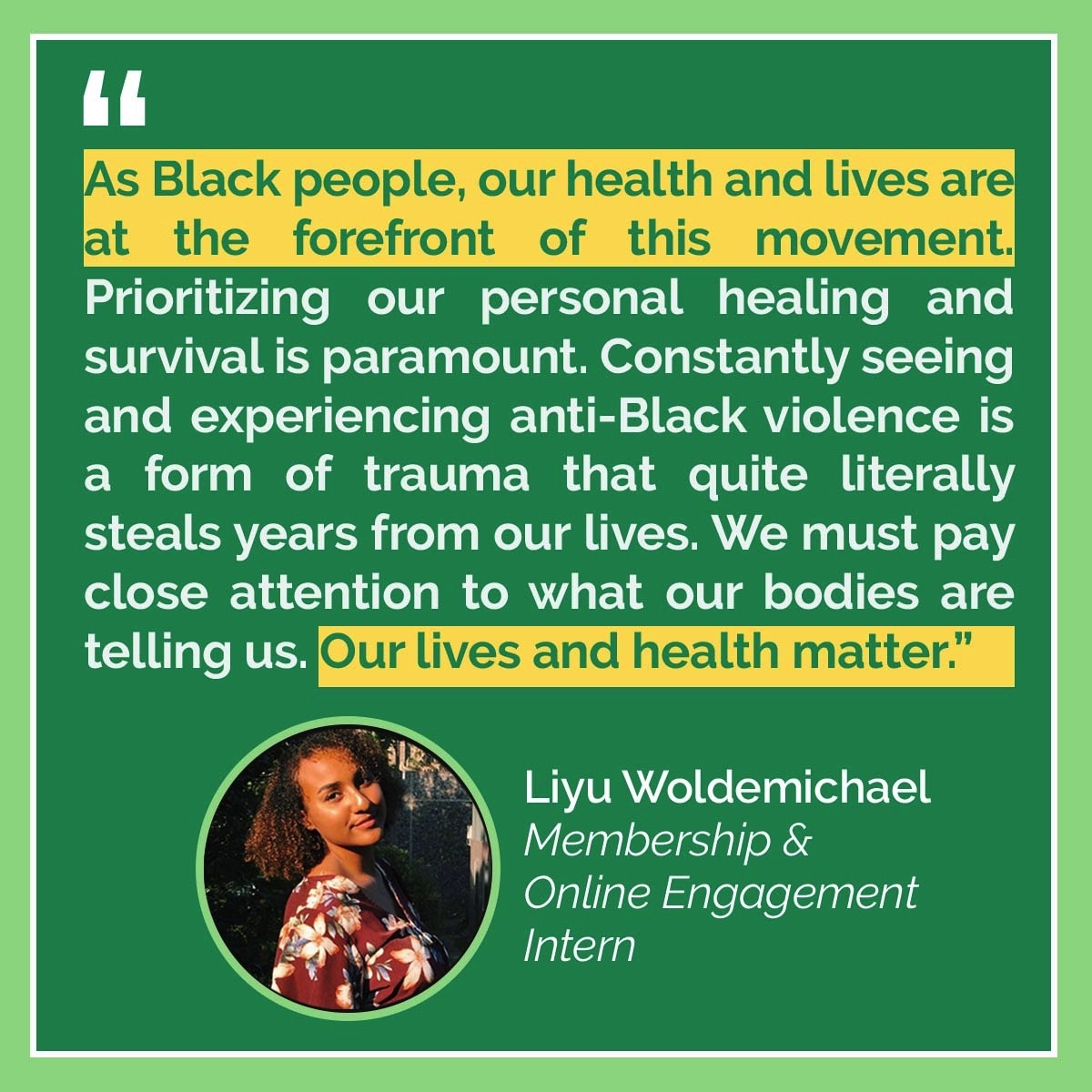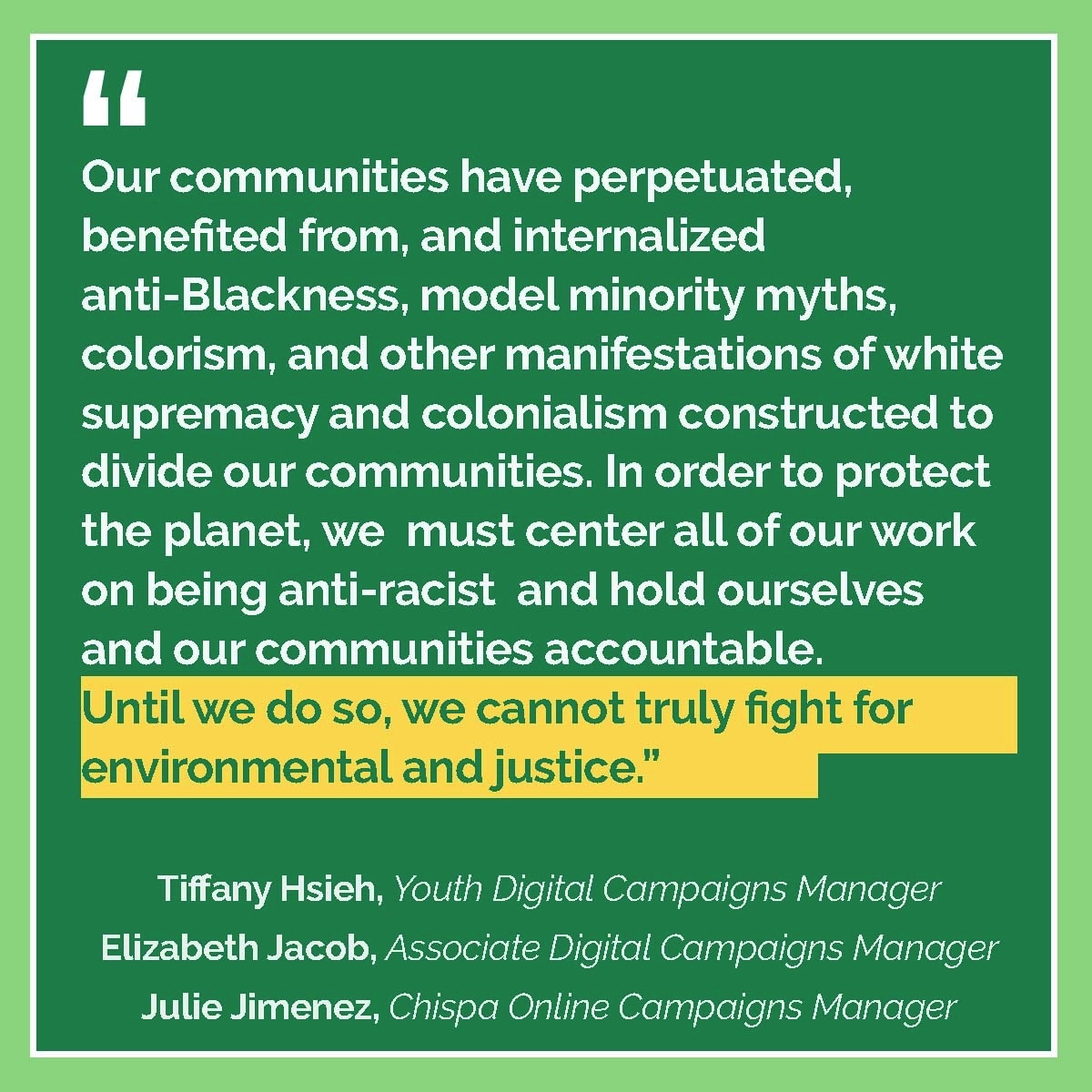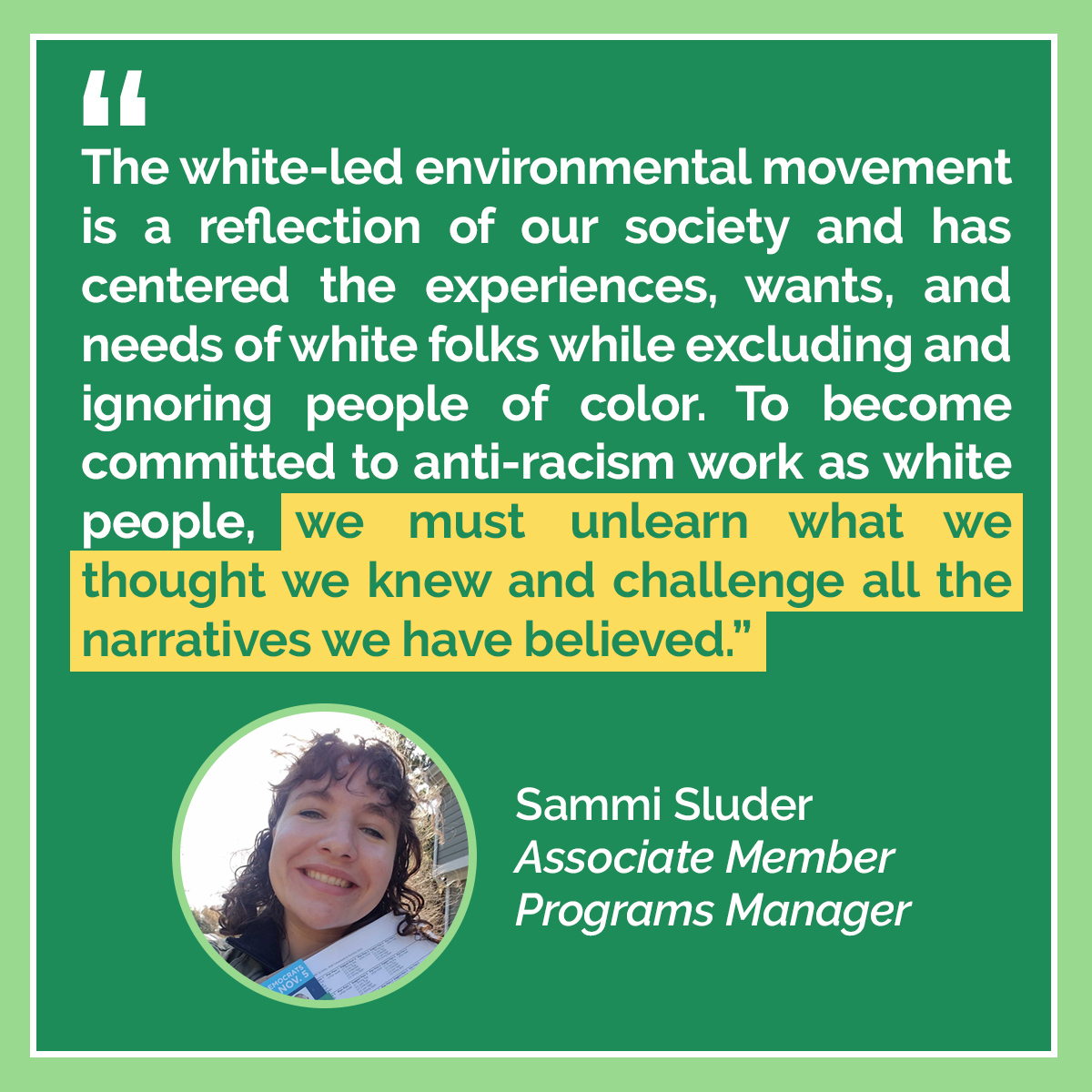House Republicans Pass Most Anti-Environmental Bill of All Time
Jul 3, 2025
We firmly believe that Black Lives Matter and we are committed to doing the real work that it takes to show up as a true ally and partner for the Movement for Black Lives. Black, Indigenous, and other communities of color have never been safe in this country — they are not safe from police, from pandemics, from exploitation, from discrimination, or from pollution. And yet, LCV and the environmental movement as a whole has not done anywhere near enough to work alongside and serve Black communities.
The result is that Black communities across the nation continue to breathe dirtier air, drink more contaminated water, lack access to green spaces, and be unsafe in their everyday environments. To build a better world that centers the needs of Black, Indigenous, and people of color to overcome systemic racism and injustice, advances climate justice, and protects all of our communities, we all need to be in the fight as anti-racist allies.
LCV is committed to advancing racial justice and equity within the work that we do so that we can be a true ally in this fight. We must all meaningfully and intentionally step up in this moment to use our power to be better allies to the Black leaders, activists, and organizers across the country who are already leading the fight to build a better world where we can all breathe and thrive safely and freely.
We cannot do this right without our supporters stepping up with us. For our Black supporters, we hope that you are taking time for healing, restoring, and caring for yourself. For our non-Black supporters of color and our white supporters, so much of this work must start with ourselves — interrogating our privilege and positions of power, understanding the impacts of racism on our society, and learning about what it means to be an ally in this work. Below are resources compiled by LCV staff of racially diverse identities that have been helpful to us as we have stepped forward into the work of anti-racism, and we hope that they can be a resource for you as well.

To our Black supporters, your health and lives are at the forefront of this movement. Prioritizing your own personal healing and survival is paramount. The trauma of constantly seeing and experiencing anti-Black violence stays in our bodies and steals years from our lives. As a young Black woman, I have been searching for ways to help keep myself mentally and emotionally healthy. It is so important for us to pay attention to what our bodies and minds are telling us. Prioritizing our health can look differently for each of us. It could mean unplugging from social media and the news or organizing a check-in call with family and friends. It could mean taking time each day to just breathe. To help with this difficult process, we have compiled a non-exhaustive set of resources that we hope can benefit your wellness.
At the same time, we have included learning resources to help each of us in our own journey to fight for all Black lives. This movement is about healing and learning. We must reflect on how the identities that we hold afford us certain privileges and step up for those who have been historically silenced. As a middle-class, able-bodied, cisgender woman, I myself have much to learn about classism, ableism, transphobia, and other overlapping systems of oppression. These resources are just a first step, but we hope that they help advance an intersectional, anti-racist framework.
— Liyu Woldemichael

As young non-Black women of color, we are reflecting, learning, and educating our families and communities about what it means to stand in solidarity and fight for Black lives. For generations, our communities have perpetuated, benefited from, and internalized anti-Blackness, model minority myths, colorism, and other manifestations of white supremacy and colonialism constructed to divide our communities. We cannot be true allies to our Black colleagues, family, friends, and community members unless we do the deep work of unlearning these constructs, understanding our own privilege, and honoring the true histories of anti-Black racism. In order to protect the planet, we must center our work on being anti-racist and hold ourselves and our communities accountable. Until we do so, we cannot truly fight for environmental and climate justice. Below, you’ll find some of the resources that have helped us in our personal journeys, as well as ones that have served as resources as we have difficult conversations with our families and our communities about showing up as true allies for the Movement for Black Lives.
— Tiffany Hsieh, Elizabeth Jacob, and Julie Jimenez

As a white person, I have been sold a narrative that folks of color don’t care about the environment and that’s why the environmental movement is overwhelmingly white, but the reality is quite the opposite. The white-led environmental movement is a reflection of our society and has centered the experiences, wants, and needs of white folks while excluding and ignoring people of color. To become committed to anti-racism work as white people, we must unlearn what we thought we knew and challenge all the narratives we have believed. We can’t do that all on our own and we need a lot of resources, especially those created by people of color (and we should make sure we’re prepared to pay creators of color for their labor to teach us). Anti-racism is a journey, and it takes recommitment on a daily basis. That’s why I want to share some of the important podcasts and articles that have made a big impact on me over the last few years.
— Sammi Sluder